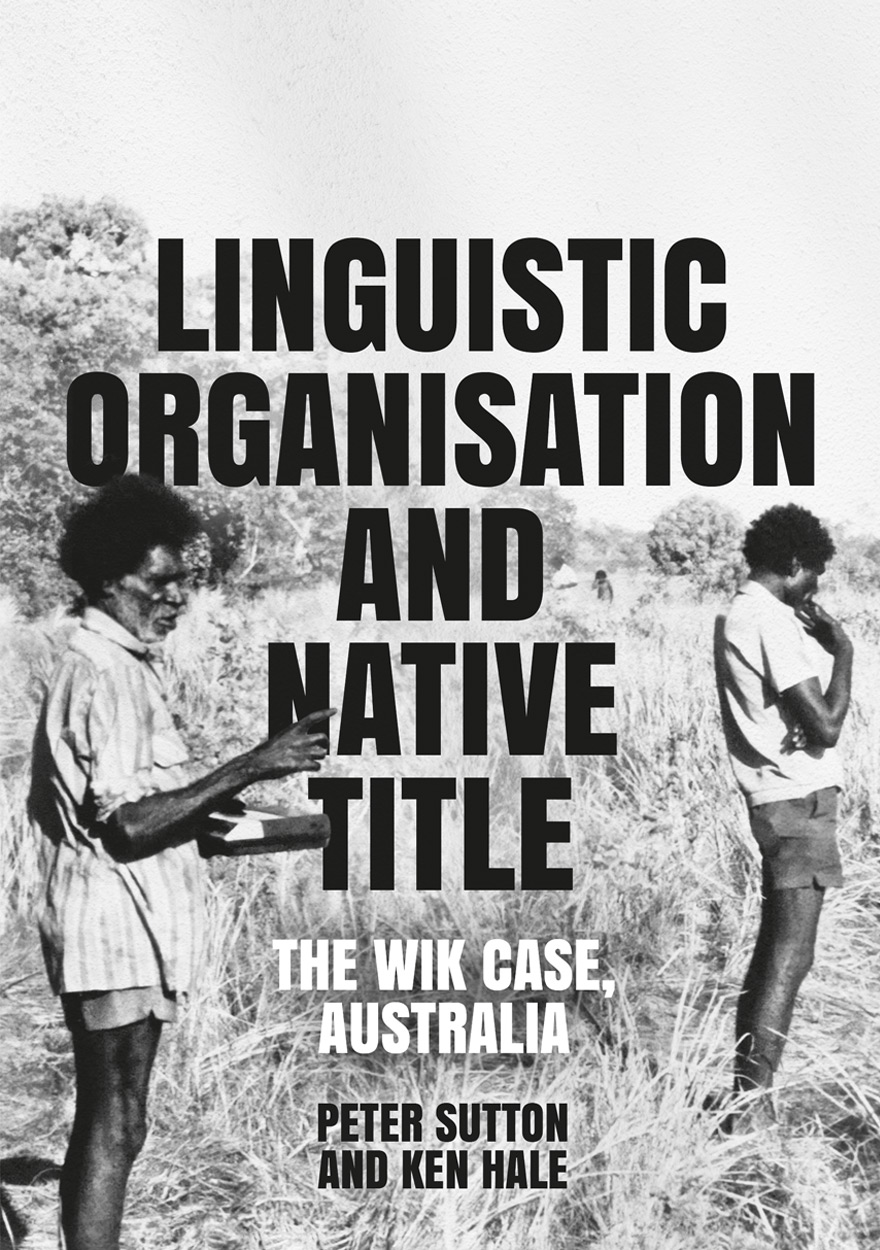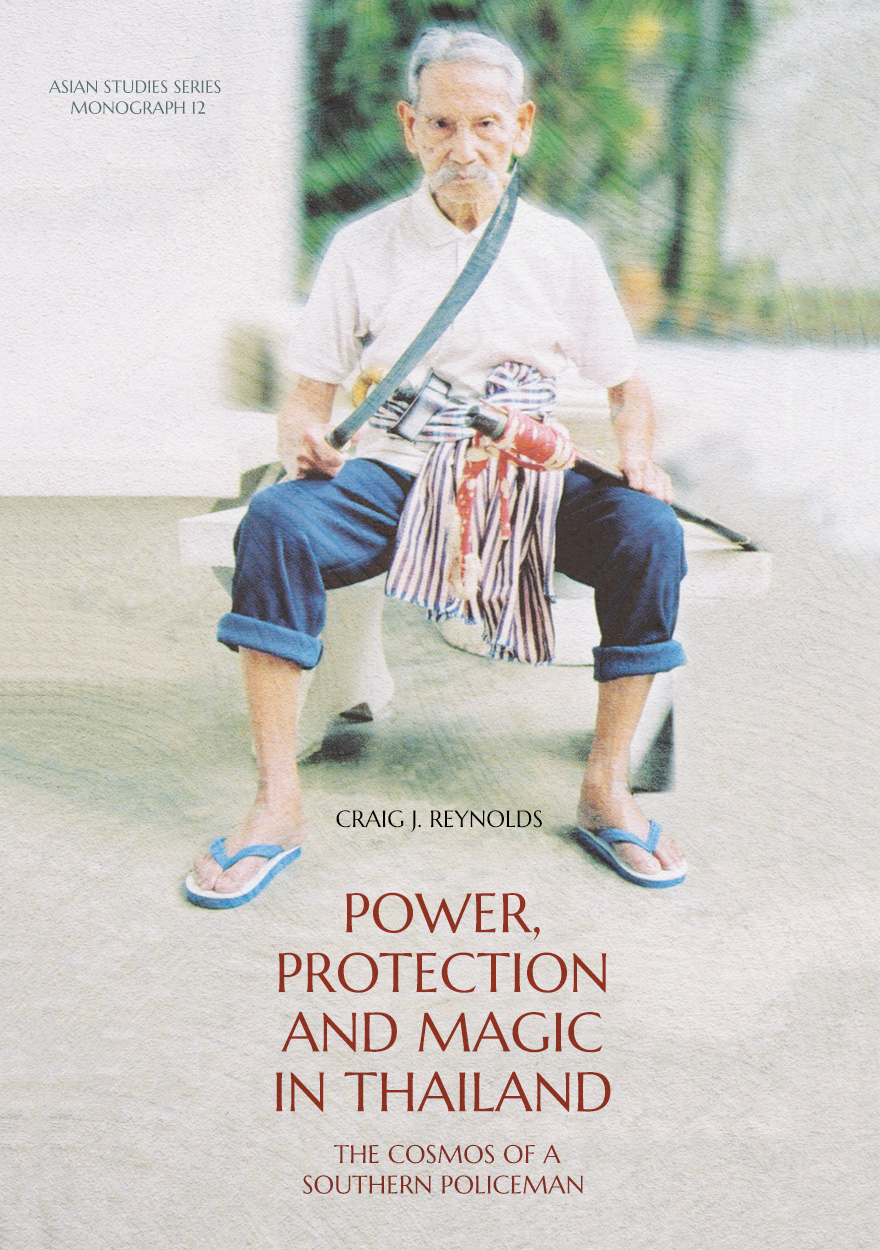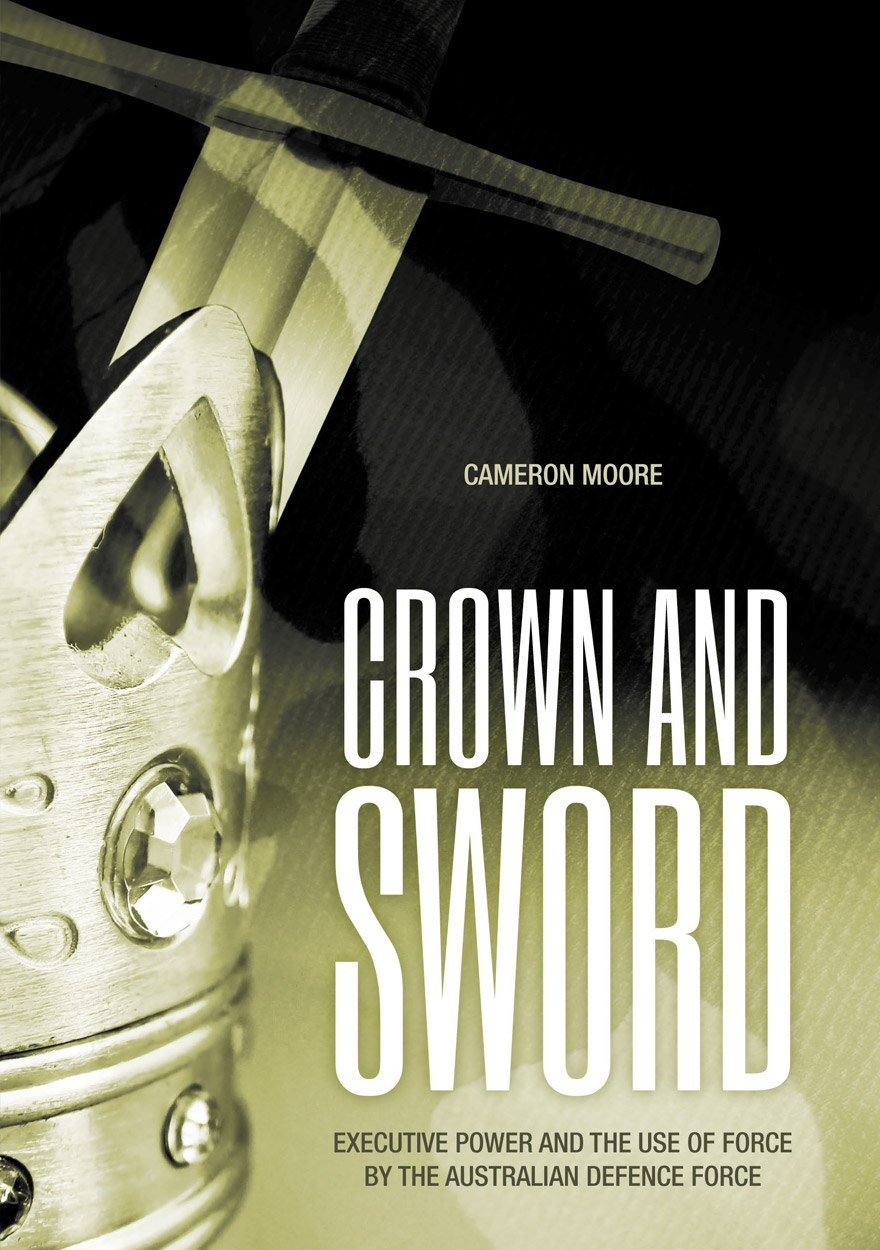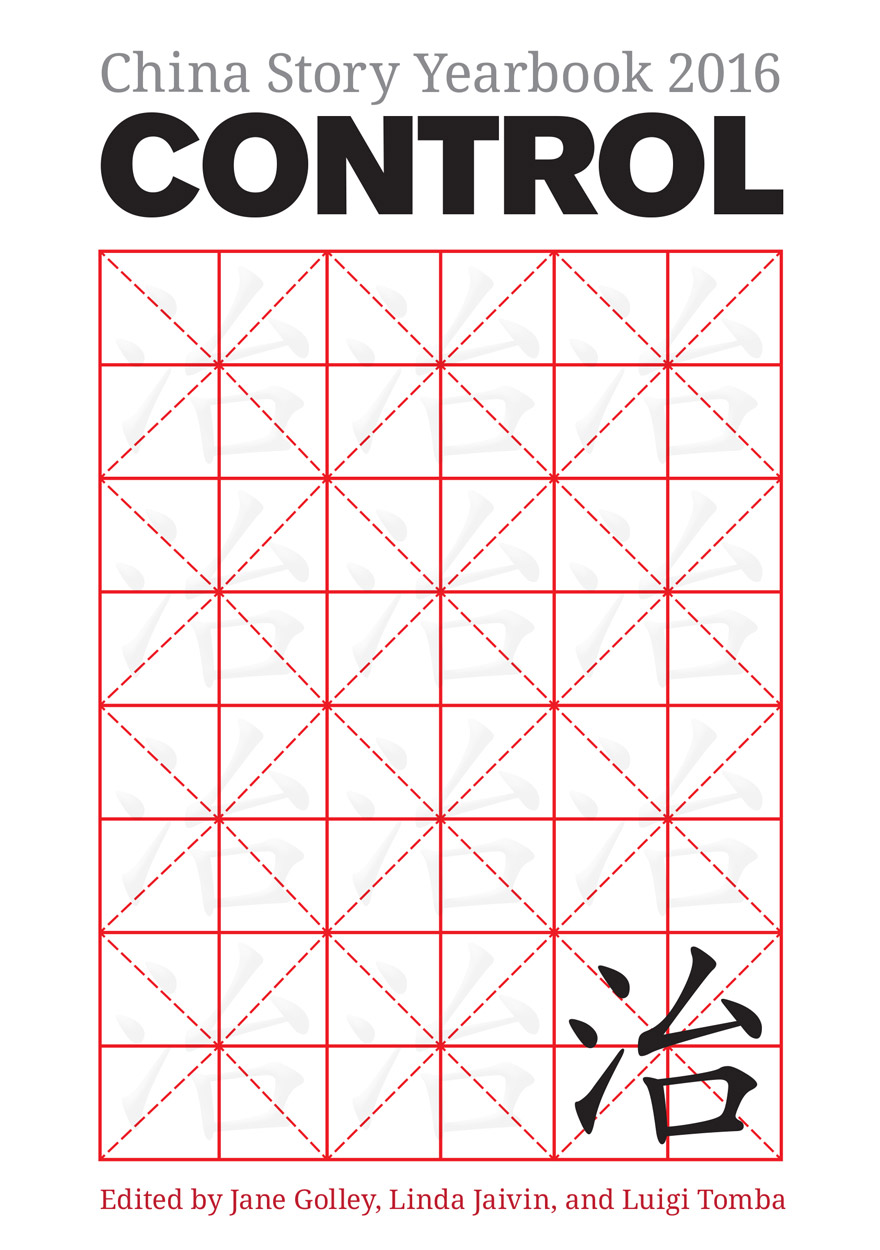Search titles
Displaying results 41 to 50 of 105.

Linguistic Organisation and Native Title »
The Wik Case, Australia
Authored by: Peter Sutton, Kenneth Locke Hale
Publication date: September 2021
Classical Aboriginal societies in Australia have commonly been described in terms of social organisation and local organisation. This book presents rich detail on a third and related domain that has not been given the same kind of attention: linguistic organisation.
Basing their analyses on fieldwork among the Wik peoples of Cape York Peninsula, north Australia, Peter Sutton and Ken Hale show how cosmology, linguistic variation, language prehistory, clan totemic identities, geopolitics, land use and land ownership created a vibrant linguistic organisation in a classical Aboriginal society.
This has been a society long in love with language and languages. Its people have richly imbued the domain of rights and interests in country—the foundations of their native title as recognised in Australian law—with rights and interests in the abundance of languages and dialects given to them at the start of the world.

Indigenous Self-Determination in Australia »
Histories and Historiography
Edited by: Laura Rademaker, Tim Rowse
Publication date: September 2020
Histories of the colonisation of Australia have recognised distinct periods or eras in the colonial relationship: ‘protection’ and ‘assimilation’. It is widely understood that, in 1973, the Whitlam Government initiated a new policy era: ‘self-determination’. Yet, the defining features of this era, as well as how, why and when it ended, are far from clear. In this collection we ask: how shall we write the history of self-determination? How should we bring together, in the one narrative, innovations in public policy and Aboriginal and Torres Strait Islander initiatives? How (dis)continuous has ‘self-determination’ been with ‘assimilation’ or with what came after? Among the contributions to this book there are different views about whether Australia is still practising ‘self-determination’ and even whether it ever did or could.
This book covers domains of government policy and Indigenous agency including local government, education, land rights, the outstation movement, international law, foreign policy, capital programs, health, public administration, mission policies and the policing of identity. Each of the contributors is a specialist in his/her topic. Few of the contributors would call themselves ‘historians’, but each has met the challenge to consider Australia’s recent past as an era animated by ideas and practices of Indigenous self-determination.

Power, Protection and Magic in Thailand »
The Cosmos of a Southern Policeman
Authored by: Craig J. Reynolds
Publication date: October 2019
This biographical study of an unusual southern policeman explores the relationship between religion and power in Thailand during the early twentieth century when parts of the country were remote and banditry was rife. Khun Phan (1898–2006), known as Lion Lawman, sometimes used rather too much lethal force in carrying out his orders. He was the most famous graduate of a monastic academy in the mid-south, whose senior teachers imparted occult knowledge favoured by fighters on both sides of the law. Khun Phan imbibed this knowledge to confront the risks and uncertainty that lay ahead and bolster his confidence and self-reliance for his struggle with adversaries.
Against the background of national events, the story is rooted in the mid-south where the policeman was born and died. Based on a wide range of works in Thai language, on field trips to the region and on interviews with local and regional scholars as well as the policeman’s descendants, this generously illustrated book, accompanied by short video clips, brings to life the distinctive environment of the lakes district on the Malay Peninsula.

The Court as Archive »
Publication date: February 2019
Until the late 20th century, ‘an archive’ generally meant a repository for documents, as well as the generic name for the wide range of documents the repository might hold. An archive could be visited, and then also searched, to discover past actions or lives that had meaning for the present. While historians and historiographers have long understood the contests that archives contain and represent, the very idea of ‘the archive’ has, over the last 40 years, become the subject and object of widening and intensified consideration. This consideration has been intellectual (from scholars in a wide range of disciplines) and public (from communities and individuals whose stories are held captive, or sometimes hidden or excluded from official archives), as well as institutional. It has involved scrutiny and critique of official archives’ limitations and practices, as well as symbolic, affective and theoretical expansion and heightened expectation of what ‘the archive’ is or should be. The very language of ‘the archive’ now carries freight as administrative practice, normative value, metaphor, description and aspiration in different ways than it did in the 20th century.
This collection offers a unique contribution to these reinvigorated and sometimes new conversations about what an archive might be, what it can do as a consequence, and to whom it bears custodial responsibilities. In particular, this collection addresses what it means for contemporary Australian superior courts of record to not only have constitutional and procedural duties to documents as a matter of law, but also to acknowledge obligations to care for those materials in a way that understands their public meaning and public value for the Australian people, in the past, in the present and for the future.

Australian Native Title Anthropology »
Strategic practice, the law and the state
Authored by: Kingsley Palmer
Publication date: May 2018
The Australian Federal Native Title Act 1993 marked a revolution in the recognition of the rights of Australia’s Indigenous peoples. The legislation established a means whereby Indigenous Australians could make application to the Federal Court for the recognition of their rights to traditional country. The fiction that Australia was terra nullius (or ‘void country’), which had prevailed since European settlement, was overturned. The ensuing legal cases, mediated resolutions and agreements made within the terms of the Native Title Act quickly proved the importance of having sound, scholarly and well-researched anthropology conducted with claimants so that the fundamentals of the claims made could be properly established. In turn, this meant that those opposing the claims would also benefit from anthropological expertise.
This is a book about the practical aspects of anthropology that are relevant to the exercise of the discipline within the native title context. The engagement of anthropology with legal process, determined by federal legislation, raises significant practical as well as ethical issues that are explored in this book. It will be of interest to all involved in the native title process, including anthropologists and other researchers, lawyers and judges, as well as those who manage the claim process. It will also be relevant to all who seek to explore the role of anthropology in relation to Indigenous rights, legislation and the state.

Cascades of Violence »
War, Crime and Peacebuilding Across South Asia
Authored by: John Braithwaite, Bina D’Costa
Publication date: February 2018
War and crime are cascade phenomena. War cascades across space and time to more war; crime to more crime; crime cascades to war; and war to crime. As a result, war and crime become complex phenomena. That does not mean we cannot understand how to prevent crime and war simultaneously. This book shows, for example, how a cascade analysis leads to an understanding of how refugee camps are nodes of both targeted attack and targeted recruitment into violence. Hence, humanitarian prevention also must target such nodes of risk. This book shows how nonviolence and nondomination can also be made to cascade, shunting cascades of violence into reverse. Complexity theory implies a conclusion that the pursuit of strategies for preventing crime and war is less important than understanding meta strategies. These are meta strategies for how to sequence and escalate many redundant prevention strategies. These themes were explored across seven South Asian societies during eight years of fieldwork.

Crown and Sword »
Executive power and the use of force by the Australian Defence Force
Authored by: Cameron Moore
Publication date: November 2017
The Australian Defence Force, together with military forces from a number of western democracies, have for some years been seeking out and killing Islamic militants in Iraq, Syria and Afghanistan, detaining asylum seekers for periods at sea or running the judicial systems of failed states. It has also been ready to conduct internal security operations at home. The domestic legal authority cited for this is often the poorly understood concept of executive power, which is power that derives from executive and not parliamentary authority. In an age of legality where parliamentary statutes govern action by public officials in the finest detail, it is striking that these extreme exercises of the use of force often rely upon an elusive legal basis. This book seeks to find the limits to the exercise of this extraordinary power.

Control »
Publication date: June 2017
‘More cosmopolitan, more lively, more global’ is how the China Daily summed up the year 2016 in China.
It was also a year of more control. The Chinese Communist Party laid down strict new rules of conduct for its members, continued to assert its dominance over everything from the Internet to the South China Sea and announced a new Five-Year Plan that Greenpeace called ‘quite possibly the most important document in the world in setting the pace of acting on climate change’.
The China Story Yearbook 2016: Control surveys the year in China’s economy, population planning, law enforcement and reform, environment, Internet, medicine, religion, education, historiography, foreign affairs, and culture, as well as developments in Taiwan and Hong Kong.

Made in China Journal: Volume 2, Issue 1, 2017 »
Edited by: Ivan Franceschini, Nicholas Loubere
Publication date: March 2017
With the arrest of yet another activist, the airing of yet another public confession, the closure of yet another NGO working for the weak and disenfranchised, and the passing of yet another repressive law, the world has come to view Chinese civil society as if it were on its deathbed. But maybe what is dying is just a dream of civil society with little basis in reality. While we mourn the death of an ideal, it is imperative that we overcome our sorrow to look at the momentous changes that are currently taking place in the realm of Chinese civil society. In this issue, we offer a series of perspectives on these developments.
Download for free
Not available for purchase

Regulatory Theory »
Foundations and applications
Edited by: Peter Drahos
Publication date: February 2017
This volume introduces readers to regulatory theory. Aimed at practitioners, postgraduate students and those interested in regulation as a cross-cutting theme in the social sciences, Regulatory Theory includes chapters on the social-psychological foundations of regulation as well as theories of regulation such as responsive regulation, smart regulation and nodal governance. It explores the key themes of compliance, legal pluralism, meta-regulation, the rule of law, risk, accountability, globalisation and regulatory capitalism. The environment, crime, health, human rights, investment, migration and tax are among the fields of regulation considered in this ground-breaking book. Each chapter introduces the reader to key concepts and ideas and contains suggestions for further reading. The contributors, who either are or have been connected to the Regulatory Institutions Network (RegNet) at The Australian National University, include John Braithwaite, Valerie Braithwaite, Peter Grabosky, Neil Gunningham, Fiona Haines, Terry Halliday, David Levi-Faur, Christine Parker, Colin Scott and Clifford Shearing.



